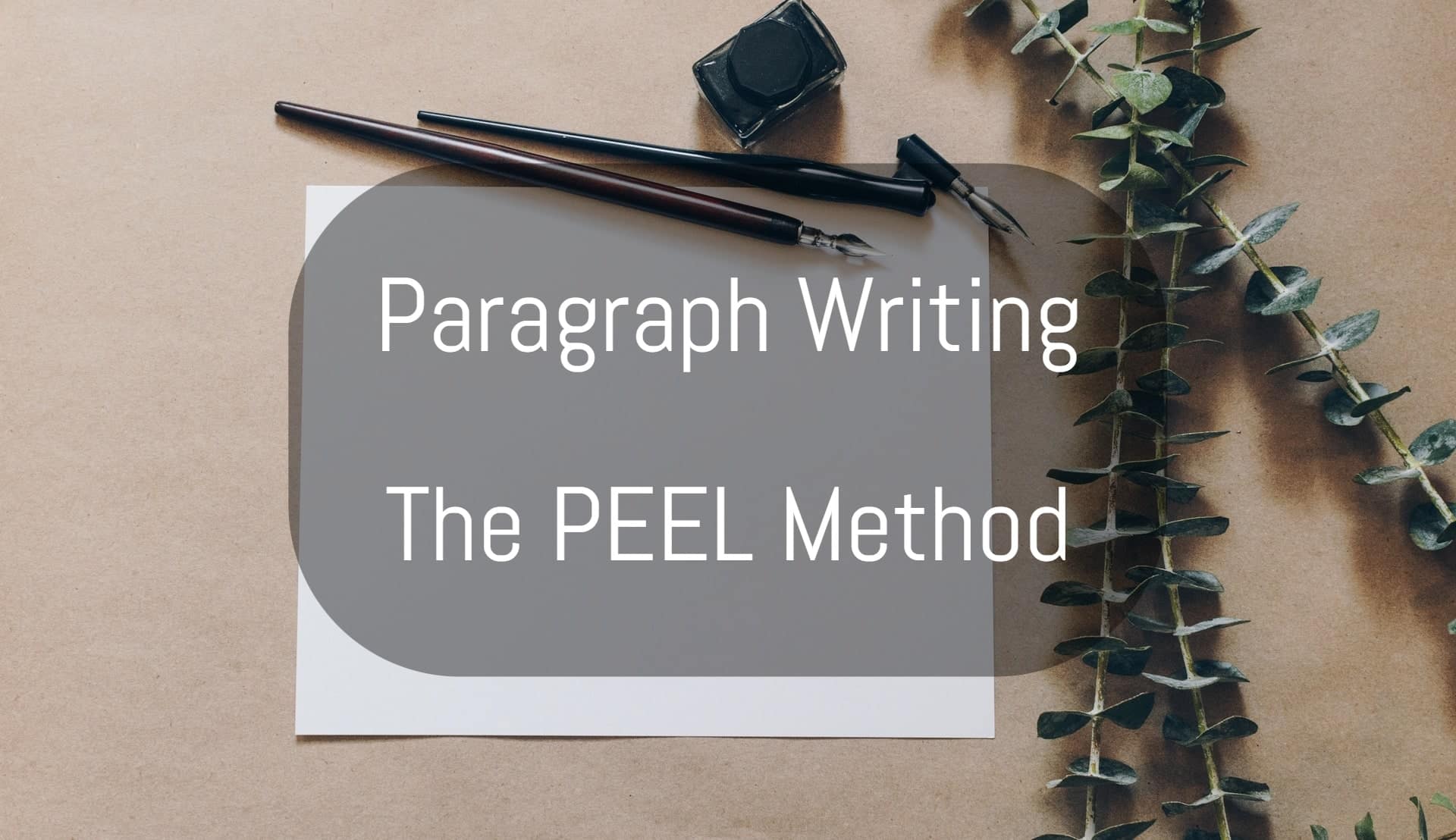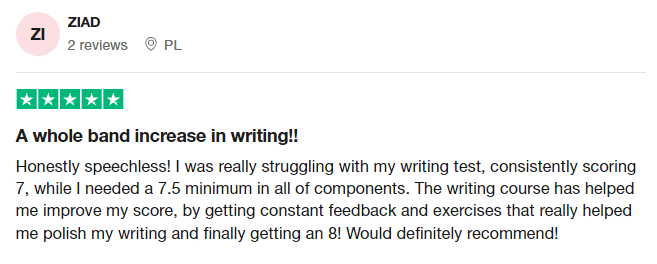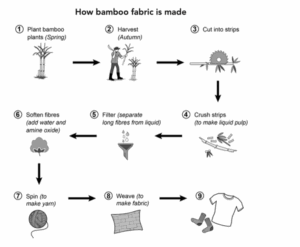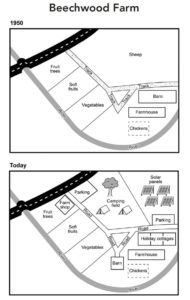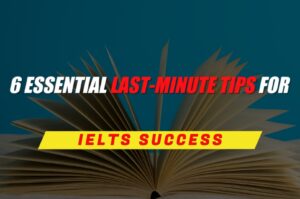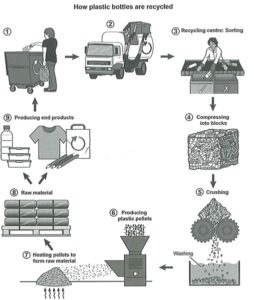In the second writing task of IELTS, you’re given a statement and then asked to evaluate it using specific examples and clear explanations. The PEEL method of paragraph writing ensures that you meet all the requirements of a high score.
Before we start, you should know what PEEL stands for:
P: Make a point
E: Explain the point clearly
E: Expand on your point (usually by a specific example)
L: Link your idea back to the question
Now, imagine you want to write a paragraph about this question:
Why do some students take a gap year between finishing high school and starting university studies?
Here’s how you can use this method to develop your paragraph:
Make a point
The first sentence of your body paragraph should include its central topic. This is where you put your main idea. Simply put, this sentence is what you’re going to support in the rest of the paragraph.
Example:
Students who find it rewarding to take a gap year often claim that it provides them with invaluable benefits and lessons.
Note: If you pay attention, you’ll realize that this is a claim which needs to be explained so that I convince the reader that my point is valid. As you can see, I have mentioned two reasons for taking a gap year: benefits and lessons. Therefore, I need to discuss these two benefits in the rest of the paragraph.
Explain the point
Now that I’ve made my claim, it’s time for me to explain what I mean by benefits and lessons. In other words, I now need to start convincing the reader that my point makes sense.
Example:
Simply put, by working and earning money before they embark on university studies, students will find it much easier to manage the high expenses and tuition fees of their tertiary education. Moreover, the ones who opt to travel gain life experience, which will help them improve their quality of life.
Now, if you’re the reader, you might say, “Oh, now I see how a gap year can be beneficial. Now I see why students opt for it, but is there an example of a student who has done this? What have been the effects?
This is where you go for a specific example to make your argument more convincing.
Provide a specific example
An example is what makes an argument super clear. However, some students make the mistake of explaining the same thing in other words and call it an example. This won’t make your point clearer; plus, your cohesion and coherence score will go down because of unnecessary repetition.
A bad and repetitive example:
For example, students who travel before starting their university studies return home with a mature and open mind.
Note: This is not a specific example. It just paraphrases the previous sentence and adds nothing more. We need an actual example with tangible effects.
Good and specific example:
For instance, in my country, many high school graduates travel to Japan, a country known for its people’s high life expectancy. This way, they learn about the Japanese’s healthy lifestyle and are encouraged to adopt their practices. As a result, the students break their unhealthy habits and start leading healthier lives upon their return.
Note: Which kind of example is well-developed? Why? The second example is better because it’s far more specific and uses step-by-step development to reach the benefit (students opting for a better and healthier lifestyle). This is what I have generally mentioned in my topic sentence, but everything is now crystal clear.
Now, the reader knows what benefits (earning money) and lessons (ways on how to live better) I’m talking about. It’s time to wrap things up and reach a nonrepetitive conclusion.
Link your idea back to the question
A body paragraph in an essay should have three parts: topic sentence, supporting sentences, and conclusion. This kind of conclusion is different from the one we use to end an essay. In a paragraph conclusion, we use the argument in the paragraph and reach some sort of conclusion. It should have three qualities:
- It should be non-repetitive. In other words, paraphrasing your topic sentence will not result in a good conclusion. You should use your topic sentence and add something to it.
- It should wrap everything in the paragraph up.
- It should link back to the main topic.
Example:
Students who find it rewarding to take a gap year often claim that it provides them with invaluable benefits and lessons. Simply put, by working and earning money before they embark on university studies, students will find it much easier to manage the high expenses and tuition fees of their tertiary education. This results in students being more focused on their studies due to having no financial worries and therefore scoring higher in their courses. Moreover, the ones who opt to travel gain life experience. For instance, in my country, many high school graduates travel to Japan, a country known for its people’s high life expectancy. This way, they learn about the healthy Japanese lifestyle and are encouraged to adopt their practices upon their return. Thus, traveling during the gap year might help students become wiser and make better choices in order to lead a better life.
A paragraph with a repetitive conclusion at the end:
Students who find it rewarding to take a gap year often claim that it provides them with invaluable benefits and lessons. Simply put, by working and earning money before they embark on university studies, students will find it much easier to manage the high expenses and tuition fees of their tertiary education. This results in students being more focused on their studies due to having no financial worries and therefore scoring higher in their courses. Moreover, the ones who opt to travel gain life experience. For instance, in my country, many high school graduates travel to Japan, a country known for its people’s high life expectancy. This way, they learn about the healthy Japanese lifestyle and are encouraged to adopt their practices upon their return. Thus, traveling during the gap year might help students become wiser and make better choices in order to lead a better life. Therefore, students taking a gap year will have a better performance at university and also healthier lives.
As you can see, the underlined section is a repetitive conclusion and will definitely lower the band score. So, avoid unnecessary repeptitions like this.
Final note: Remember that you should never repeat the same idea in your paragraph. Just mention the points, add your support, and move the argument forward.

